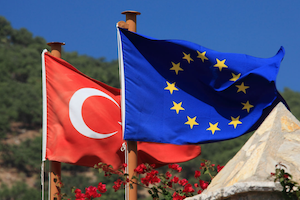Turkey's Rise as an Inter-regional Power Requires Rapprochement with Egypt
By Michaël Tanchum
May 29, 2021
On May 5 and 6, 2021, Turkey's deputy foreign minister visited Cairo, heading a delegation of Turkish officials to engage in exploratory rapprochement talks with their Egyptian counterparts. The first visit to Egypt by senior Turkish government officials since 2013, the landmark discussions were the culmination of Ankara's spring 2021 diplomatic outreach to Egypt. Beyond the goals of ameliorating Turkey's isolation in the Eastern Mediterranean and its exclusion from the multinational effort to develop the region's offshore energy reserves, Ankara's outreach to Egypt reflects a larger recalibration of Turkey's grand strategy. Ankara has come to understand that to realize its vision of transforming Turkey into an inter-regional power with commercial reach across the Middle East and greater East Africa region, Turkey must end its eight-year strategic antagonism to Cairo. By addressing Egypt's concerns about Turkey's support for the Muslim Brotherhood in particular, Ankara may find a geopolitical modus vivendi with Cairo that would facilitate Turkey's aspiration to play a leading role in the emerging commercial architecture linking the Eastern Mediterranean, the Arabian Peninsula, and the wider East Africa region.
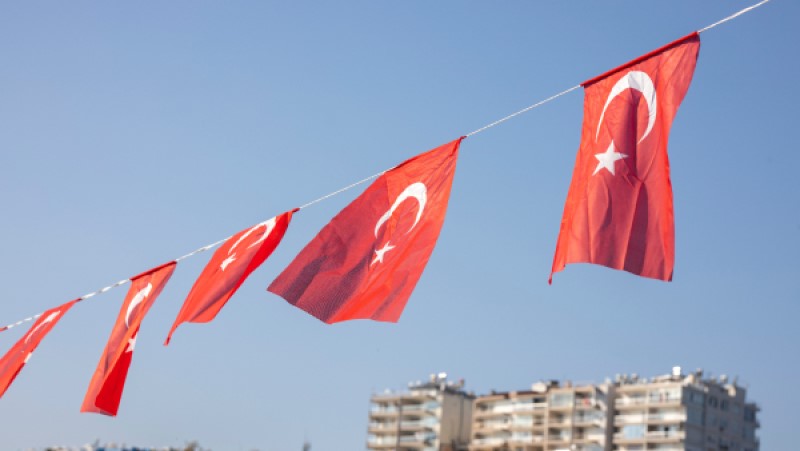
From Pro-Americanism to Anti-Imperialism: The Historic Turn of the Turkish Nationalist Right
By Halil Karaveli
September 21, 2020
Turkey’s pursuit of its geopolitical objectives in the eastern Mediterranean has historically not aligned with what used to be its paramount national security priority, to maintain a “strategic partnership” with the United States. The clash of foreign policy priorities has fuelled divisions in the Turkish military, between conservative pro-Americans and left-leaning, self-described anti-imperialists. Today though, the right-wing nationalists have embraced the anti-imperialism of the nationalist left. That is a profound change.
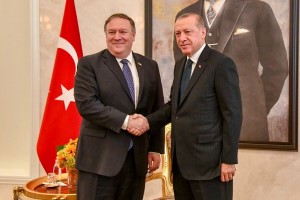
Turkey’s Blue Homeland Doctrine: Signaling Perpetual Conflict in the Mediterranean and Rough Waters Ahead
By Cengiz Çandar
August 26, 2020
Turkey’s and Greece’s zero-sum game in dealing with the issues of maritime delimitation and jurisdiction has for decades posed a problem for the peace and stability in their region. The discovery of energy resources in the eastern Mediterranean has raised the stakes significantly. Mutual intransigence, but most importantly the growing power of ultranationalist officers in the Turkish state, is exacerbating tensions. Turkey’s Blue Homeland doctrine, the endeavor to establish Turkish naval supremacy in the eastern Mediterranean, is ultimately a testimony to the clout of anti-Western ultra-nationalism in the Turkish military and state. It ensures that the eastern Mediterranean will be in perpetual conflict.
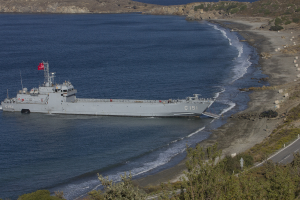
Turkey Advances in Africa against Franco-Emirati-Egyptian Entente
By Michaël Tanchum
August 25, 2020
Turkey's expanded military presence in Libya has tilted the geopolitical game-board more in Ankara's favor vis-à-vis France and Egypt and their partner the United Arab Emirates. While motivating the strong backing Paris and Cairo are providing to Greece as it confronts Turkey in the eastern Mediterranean, Ankara's effort to extend Turkey's influence throughout Africa is driving a wider strategic competition between Turkey and France in the Sahel and likewise between Turkey and Egypt in the Horn of Africa. Ankara's advances in Niger in the Sahel and in Ethiopia in the Horn have raised the stakes for Turkey's rivals, pushing them into closer alignment, with the rivalry between Turkey and the Franco-Emirati-Egyptian entente defining one of Africa's main geopolitical fault lines.
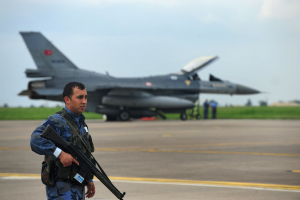
The EU and De-escalation in the Eastern Mediterranean
By Natalia Konarzewska
June 29, 2020
The discovery of new gas reserves in the region was expected to bring peace and prosperity to the Eastern Mediterranean littoral states but it has created new geopolitical and security risks instead. In April and May this year, Turkey continued with gas drilling within Cyprus' exclusive economic zone which drew new harsh criticism from the European Union. Turkey's assertive stance shows that Ankara is unlikely to abandon its pursuit for hydrocarbons in the region and that it will hence remain on a collision course with Greece and Cyprus. The EU would do well to seek de-escalation and should recognize that circumventing Turkey is not a viable strategy. Otherwise, there is a clear risk that the hydrocarbon dispute in the region will spiral out of control and lead to military confrontation.
